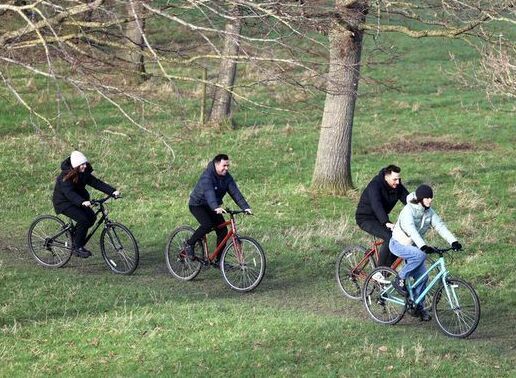By Frieda Klotz
letters@irishecho.com
For seven years, Mary Philbin has been battling the side effects of illness.
Now she has an opportunity to receive treatment in the States, but she is uncertain how she will pay for it.
Philbin was 19, in the first year of college in County Cork and having the time of her life, when she realized that what appeared to be a throat infection could be a sign of a bigger problem.
She was hungry all the time, tired and lacking energy, and she felt nagging pain in her teeth and on the left side of her face.
After waiting months for a CT scan, she eventually received the diagnosis: a rare type of cancer called nasopharyngeal carcinoma, which affects the throat and nose.
An aggressive course of radiation treatment kept the cancer at bay but Philbin has suffered devastating side effects: the radiation destroyed her saliva glands entirely, and scar tissue formed in her throat, which prevents her from eating any solid food.
She has a condition like lockjaw and breathes with difficulty.
Last July she learnt of a serious complication: liquid was seeping into her lungs. "That's the cruel reality of treatment," she said, describing the after-effects. "I feel blessed that I'm alive today. But I was only 19 at the time and ...it's so harsh. Hopefully in the future people won't have to go through what I went through."
The therapy, though successful, left Philbin with an array of new health issues.
Now 26 years old, she survives on a liquid diet, able to consume between 600 and 900 calories per day. And her condition is getting worse. Further surgeries have helped to stretch her constricted throat but, with each procedure running the risk of aggravating the scars, her consultants in Ireland are reluctant to do more.
Last week, Philbin traveled to America for treatment, which she hopes will alleviate her symptoms. She spoke to the Irish Echo from her room at the Fitzpatrick Hotel near Grand Central.
She was shortly to travel to North Carolina, where she plans to see a specialist based at the Wake Forest Baptist Medical Center. After doing extensive research online, Philbin located Dr. Christopher Sullivan, a consultant with a reputation for performing successful and innovative surgery in this field.
“She was shortly to travel to North Carolina, where she plans to see a specialist based at the Wake Forest Baptist Medical Center. After doing extensive research online, Philbin located Dr. Christopher Sullivan, a consultant with a reputation for performing successful and innovative surgery in this field.”
Philbin was struck by the testimony of one of his patients, who had been unable to swallow before treatment but was able to eat solid food after it. The story filled her with hope, she said. "It was a matter of having to take this leap and come here."
The Philbins are relying on the Irish Health Service Executive to fund all or part of the treatment, but that has not been confirmed. With no health insurance in the U.S., their financial position is precarious.
"We haven't heard anything back yet," the young woman said.
"Things aren't looking very positive at the moment."
Already the Philbins have borrowed to fund her visit. Mary's mother, Eileen, told the Echo that they are rapidly running out of money.
Nor do they have an idea of how much the procedure itself might cost.
"There are so many complications they just can't call it," Eileen said, speaking over the phone.
"It's very hard to say what it could be."
Eileen, who lives in Cavan, has stayed in Ireland to seek a commitment from the Health Services Executive. She told the Echo of plans for a fun-run, a coffee morning and sale of raffle tickets.
"It's in quite a small way so it's very hard to determine what will be raised from that," she acknowledged.
"It probably won't be an awful lot but every little will help."
For her daughter, the journey to New York itself was arduous. The radiation treatment leaves her unable to fly, so instead she plotted a circuitous route: traveling by car from Cavan to Rosslare, she took the ferry to Fishguard in Wales. Southampton was the next stop where a ship was setting off across the ocean.
The transatlantic passage took seven days and exposed Philbin to further potential infections and ill health.
"It's been a crazy undertaking, such an enormous undertaking for someone in my shoes."
With money too tight to cover much time in New York City, Philbin intended to travel to North Carolina as soon as possible.
Whether or not funding comes through from the Irish government, she said she was adamant about seeing this doctor.
Otherwise, as things are the future looks bleak.
Over the phone, even now, Mary's breathing sounded labored.
"If I give up too easily and go home, my health is going to deteriorate. My breathing is going to get worse," she added.
"It's not great as it is."
Mary was optimistic about the efficacy of her U.S. gamble. "They're telling me that they've nothing to offer me in Ireland," she pointed out.
"All you can do is hope, and if you don't try you'll never know."
People interested in contributing towards Mary's treatment can contact Mrs. Eileen Philbin at 1-353-87-6490311.









